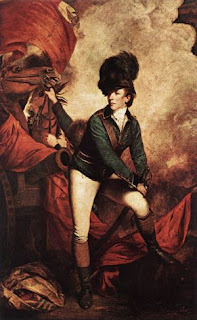 Silas McDowell was a pomologist and botanist who discovered or introduced at least fifteen new apple varieties during the 1850s. He was a farmer, scientific observer, mountain guide, clerk of the Superior Court, and a man of letters. Born 16 May 1795 in York District, South Carolina, he was a cousin of Colonel Joseph McDowell of Pleasant Gardens, for whom McDowell County, North Carolina, was named. Son of Elizabeth McDowell (b. 1772) and an unknown (or undisclosed) father, Silas was raised mostly by his maternal grandfather “Pacolet William” McDowell. In 1812 he went to Asheville, where he was educated at the respected Newton Academy. Two years later he returned to South Carolina for an apprenticeship with a tailor in Charleston.
Silas McDowell was a pomologist and botanist who discovered or introduced at least fifteen new apple varieties during the 1850s. He was a farmer, scientific observer, mountain guide, clerk of the Superior Court, and a man of letters. Born 16 May 1795 in York District, South Carolina, he was a cousin of Colonel Joseph McDowell of Pleasant Gardens, for whom McDowell County, North Carolina, was named. Son of Elizabeth McDowell (b. 1772) and an unknown (or undisclosed) father, Silas was raised mostly by his maternal grandfather “Pacolet William” McDowell. In 1812 he went to Asheville, where he was educated at the respected Newton Academy. Two years later he returned to South Carolina for an apprenticeship with a tailor in Charleston.
From 1816 to 1846, Silas McDowell worked as a tailor, first in Morganton, North Carolina, and later in Macon County, North Carolina, where he also served a clerk of the Superior Court for nearly sixteen years. On his farm near Franklin, he raised and sold apples, fruit tree grafts, and rhododendrons. He also experimented with native American grape varieties. In addition, he served as a guide to John Lyon, Moses Ashley Curtis, and several other botanists, touring and collecting specimens in western North Carolina.
McDowell was largely a self-taught scientist. He wrote extensively on a wide variety of scientific and literary subjects, including botany, horticulture, mineralogy, geology, zoology, and local and state history. He is perhaps best known as the originator of the "thermal belt" concept (which is a zone on a mountainside where frost and freezes are less common than in the valleys and on the mountaintops).
He gained fame as a writer and storyteller, and was the source of much of Eoneguski, "the first North Carolina novel," written by Senator Robert Strange. McDowell's writings were published in such widely diverse places as Harper’s, The North Carolina Planter, The Raleigh Observer, and Southern Cultivator. His prose landscape sketches were highly praised by James Wood Davidson in The Living Writers of the South (1869).
McDowell married Elizabeth Erwin in 1828. They, along with Silas' mother Elizabeth, moved to his farm in Macon County, North Carolina, which he had purchased in 1820. He had learned about the area from a former landlord, who had been part of General Griffith Rutherford's 1776 Cherokee expedition, and bought the land after the Cherokee cession in 1819. McDowell wrote about this farm in an 1873 letter to Lyman Draper, and said that he had “resolved to buy the Hiddintown in the Cullasajah Valley" while a "romantic youth" in school. He lived on the farm, which he variously referred to as Hiddintown, Sugartown, and the Vale of Cullasajah, until his death in 1879. The name Cullasajah, today spelled Cullasaja and used to designate a small river between Highlands and Franklin, North Carolina, has been variously spelled over the years as Cullasajah, Cullasaga, Cullasaja, and Callasaga. One of the apple varieties developed by McDowell, which is still cultivated, bears the name Callasaga.
(Sources: “Silas McDowell & Southern Apples,” compiled by T. Duane Phillips; and "Silas McDowell and the Early Botanical Exploration of Western North Carolina," by Gary S. Dunbar, North Carolina Historical Review, 1964)

